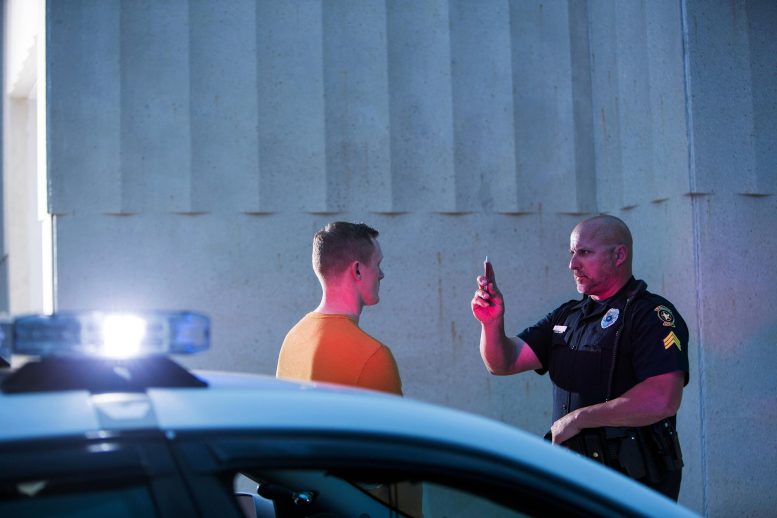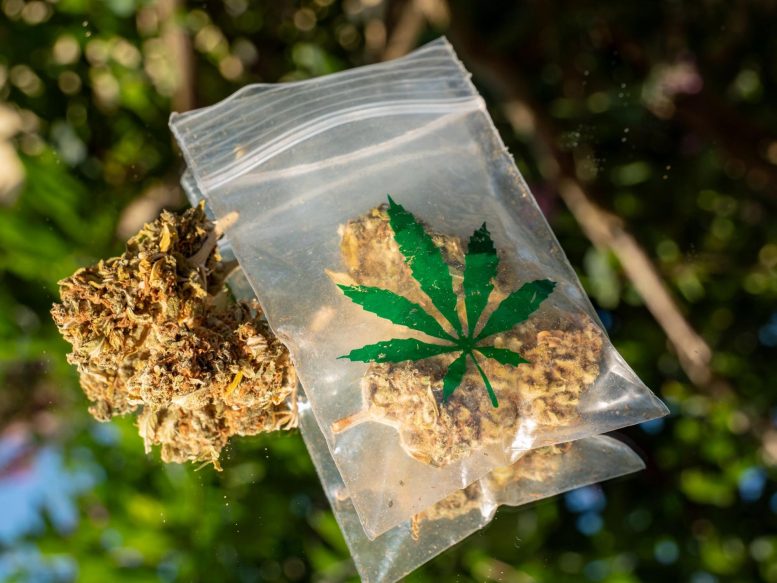
A study from the University of California San Diego evaluated the effectiveness of field sobriety tests in identifying THC-induced driving impairment. The results suggested that while these tests can distinguish between THC consumers and non-consumers at certain time points, they may not be sufficient in definitively determining THC-specific driving impairment.
UC San Diego scientists evaluate how accurate law-enforcement administered field sobriety tests are at measuring cannabis exposure and impairment.
In an era of increasing cannabis legalization, road safety is a critical issue. Cannabis is known to impair reaction time, decision-making, coordination, and perception—skills necessary for safe driving. In the last three years, California has seen a 62% increase in the number of fatal crashes involving drug-related impairment.
Challenges in Measuring THC Impairment
Interestingly, the correlation between blood alcohol concentrations and impairment is not mirrored in tetrahydrocannabinol (THC) blood concentrations and driving performance. Law enforcement officers must instead depend on behavioral tests to gauge a driver’s level of impairment. However, these field sobriety tests were primarily validated based on alcohol consumption, so their effectiveness in detecting cannabis impairment remains uncertain.
Field Sobriety Tests and Cannabis Impairment
In a study published August 2, 2023, in JAMA Psychiatry, researchers at the University of California San Diego Center for Medicinal Cannabis Research performed a double-blind, placebo-controlled randomized clinical trial to evaluate how accurate field sobriety tests are in identifying drivers under the influence of THC. The results showed that tests administered by law enforcement officers could differentiate between individuals who had consumed THC versus those who had not at certain time points. Still, the overall accuracy of the tests may be insufficient to denote THC impairment on their own.

Cannabis is the illicit drug most frequently found in the blood of drivers involved in motor vehicle crashes, including fatal ones.
“Driving is a complex task that requires intact attention and motor skills to stay safe,” said first author Thomas Marcotte, PhD, professor of psychiatry at UC San Diego School of Medicine and co-director of the Center for Medicinal Cannabis Research at UC San Diego. “While cannabis can be impairing, the effects vary for each individual. There is thus a public health need to confirm that evaluations of impairment are effective and unbiased, and this study is an important step towards that goal.”
Study Methodology and Results
The study consisted of 184 adult cannabis users aged between 21 and 55. During the experiment, 63 participants were given a placebo cannabis cigarette, while 121 participants received a THC cannabis cigarette. Participants who consumed the THC reported a median ‘highness’ level of 64 on a scale of 0 to 100, suggesting significant intoxication was achieved.
Highly trained law enforcement officers then performed field sobriety tests to examine abilities such as balance, coordination, divided attention, and eye movements. These include the Walk and Turn, One Leg Stand, Finger to Nose, Lack of Convergence, and Modified Romberg tests. The tests were performed at four different time intervals, roughly one, two, three, and four hours after smoking.
The results showed that officers classified a significantly higher proportion of participants in the THC group as being impaired based on the field sobriety tests compared to the placebo group at three of the four time points measured. For instance, one hour after smoking, they labeled 98 participants (81%) from the THC group as being impaired based on their performance, and 31 participants (49%) from the placebo group. But regardless of their actual assignment (THC vs. placebo), officers suspected that 99% of those who failed the tests had consumed THC.
Driving Simulation and Field Sobriety Tests
In addition to the field sobriety tests, study participants undertook a driving simulation, which was found to significantly correlate with the results of selected field sobriety tests. However, officers were not privy to this information.
The researchers concluded that existing field sobriety tests may be sensitive enough to detect those under the influence of cannabis. However, the substantial overlap in poor test performance between the placebo and THC groups, and the high frequency at which officers suspected this was because of THC consumption, suggest that field sobriety tests alone may be insufficient to identify THC-specific driving impairment.
Future Implications and Research
The authors note that officers in the field would be equipped with more information by interviewing the driver and observing their driving ability, so pairing the field sobriety tests with this additional information could prove more successful in an overall determination of whether a driver is impaired.
“Field sobriety tests are useful additions to overall evaluations of drivers, but are not accurate enough on their own to determine THC impairment,” said Marcotte. “New effective measures for identifying cannabis impairment are needed to ensure the safety of all drivers on the road.”
The UC San Diego Center for Medicinal Cannabis Research has now partnered with the California Department of Motor Vehicles and the California Highway Patrol on a follow-up study to test various methods of detecting cannabis-impaired driving. The study aims to recruit 300 participants and is set to begin in late summer 2023.
Reference: “Evaluation of Field Sobriety Tests for Identifying Drivers Under the Influence of CannabisA Randomized Clinical Trial” by Thomas D. Marcotte, PhD; Anya Umlauf, MS; David J. Grelotti, MD; Emily G. Sones, BA; Kyle F. Mastropietro, BS; Raymond T. Suhandynata, PhD; Marilyn A. Huestis, PhD; Igor Grant, MD and Robert L. Fitzgerald, PhD, 2 August 2023, JAMA Psychiatry.
DOI:
Co-authors include: David J. Grelotti, Kyle F. Mastropietro, Raymond Theodore Suhandynata, Igor Grant, Anya Umlauf, Emily G. Sones and Robert L. Fitzgerald, all at UC San Diego, as well as Marilyn A. Huestis at Thomas Jefferson University.
The study was funded by the State of California via Assembly Bill 266, agreement 907.









Appalling, police suspecting 49% of the placebo group. Just give them a coin to flip for deciding whose lives to ruin. There is no accurate streetside test (yet).
“California has seen a 62% increase in the number of fatal crashes involving drug-related impairment” is irrelevant. It sounds relevant, because cannabis is a drug, but so are all prescriptions like benzodiazepin)es and methamphetamin)e, and the usage of both in California is skyrocketing and has been for years. For the uninitiated, Vali)um and meth/Desoxi)n are quite apart from cannabis; if you see someone swerving at 150mph on fire screaming, suspect meth, but if you see someone driving cautiously too safe at 25mph, suspect cannabis.
Driving drunk is a real problem. These field sobriety tests are clearly useless, with a 50% fail rate. Good thing we have alcohol breathalyzers. That won’t work reliably with cannabis; they will penalize folks who regular smokers but who are not currently under the influence. Regular smokers show little to no impairment with low-dose consumption roughly an hour after doing so. Non-regular smokers may be impaired for several hours or half a day or more with half the consumption rate; if they eat the cannabis, again no physical test is reliable, and their impairment may last a day or more.
According to the NORML website years ago (it may still be there), British researchers compared drivers “high” on cannabis, to those under no influence of any drug but who were just a “little bit tired or fatigued” like people driving home from work of an 8-hour day at the office at 5:00PM. The “tired” people had worse reaction times and worse coordination.
Alcohol (and many other drugs) fools you into thinking you’re O.K. to drive, especially regular drinkers; then you wake the next morning and say “WTF! Why did I drive?!” Cannabis does not; if you are so high that you shouldn’t be driving, you know it. Alcohol will distort your “morality” regarding driving under the influence: maybe you know you’re quite buzzed, but you’ll drive “this time” anyway – it’ll be ok just once (which is every time); then you wake the next morning and say “WTF! Why did I drive?!”. Cannabis does not; if you know you’re high, you wait, responsibly. Of course, that depends on you being responsible and respectful of others’ lives in the first place.
Alcohol will distort your reality on how much to consume; “sure I’ll have another” when you’re already drunk and need to drive home later is a common phrase at the bar. Cannabis does not; when you’re as high as you need to (medical) or want to be, you typically stop consuming.
Do not confuse the social problems regarding the two.
More drugs are found associated with traffic accidents recently; sure. Even if cannabis is found in the blood of an accident victim or the driver who caused the accident, that doesn’t mean that the person was high at that time. That could be from 3 weeks before; now it is legal, so more folks are consuming it in the general population; and there are simply more people today then ever. And they say less are consuming alcohol; that is good for them and society.
For anyone in the UK, Fifth Gear did a similar test available online, “What are the effects of driving stoned?” and it is entertaining. The driver actually does better after smoking cannabis, attributing it to calmness and focus on the task at hand. I exaggerated with 25mph, but the risk is driving too safely.